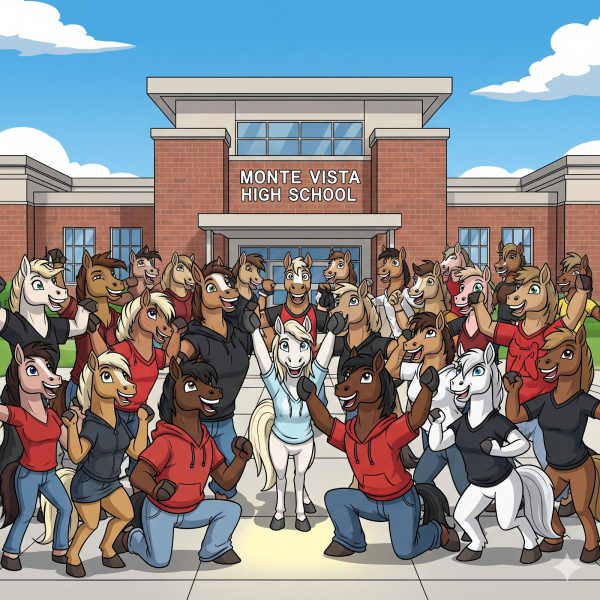Is saying the n-word contributing to our learning, or just unnecessary?
The n-word holds substantial weight in our society and whether or not its use should be prohibited in classrooms is a very controversial topic.
This six-letter word holds major historical significance in our country. The meaning of the word is impossible to circumvent, due to its derogatory use towards African-Americans.
In everyone’s academic career, they will come across this word in a novel. Some teachers choose to say it, while others do not. If they do choose to say it, this word in a classroom it can make students feel upset, or even unsafe.
All Monte Vista freshman read To Kill A Mockingbird and Of Mice and Men. Sophomores, juniors, and seniors may also come across books that contain this word. Most of these books were published when this demeaning word had been more normalized [around the ’30s]. Some teachers choose to talk to their students about the history and effects of this word in a lesson or lecture before students study the novel.
“You have to prime students to have a particular lense on reading words like that,” said Monte Vista teacher Stephen Brooks. “I, as your teacher, am responsible for creating a safe environment in my classroom for everybody, and we have learned how damaging and hurtful that word is to people, we are not going to say or type this word out.”
Monte Vista English teacher, Carrie Leadingham, taught a lesson called, “Sticks and Stones Can Break My Bones, But Words Will Never Hurt Me” where students had to write about the context in which they hear the n-word in, and then interview their parents about the same thing. This helped students understand two different points of view about the word, learn how the word is used in appropriate scenarios or inappropriate scenarios, and how words really do hurt.
Some of the students say the word does not affect them because it is so popularised in main-stream music and other places, while their parents talk about how they have always grown up learning to never let that word leave their lips. One can also argue that the meaning has now changed, but the horrifying history behind this word is set in stone and will not change.
“There is no correct manner to say the word,” Tana Zifodya, president of Monte Vista’s Black Student Union [BSU] said. “As an African-American student myself, if I am able to not say the word, then I am pretty sure teachers should be able to not say it.”
Monte Vista senior Amelia Del Aguila has had some experience with teachers discussing and saying this word.
“I think, in general, if it is a non-black teacher saying it, I would be uncomfortable,” Del Aguila said. “But if they were reading a quote, I would understand.”
Learning the impact and history behind this word is very important, and some teachers believe saying it helps the students understand the impact of the word.
“I was raised with my parents telling me I could never use the word, no matter the circumstance,” Leadingham said. “Therefore, I cannot say the word out loud. I am uncomfortable saying it out loud, and I am uncomfortable hearing anyone say it out loud.”
Teachers have a personal choice to make when deciding whether or not they should say the n-word, but the word and history is something that should be taught.
“I personally think [students] should make the choice to not say it,” Del Aguila said.
When reading novels with this word, a student might be faced with an opportunity to say the word, so they must decide whether or not to say it. This differs from person to person, everyone has their own opinion or experience regarding this that affects their actions.
“It’s just not a word that I want to say, or should say,” Del Aguila said.
Many students might feel this way or make their peers feel the same by saying it.
The context in which students learn about these books are talking about racial topics, that is why the word is included. Automatically seeing that word triggers a response that authors include on purpose. Some teachers want students to see that which is why they might say the word while teaching or reading a novel.
“The author is using that word, not necessarily because they are comfortable with it but because they are writing about racial topics and they are showing us something about this culture,” Leadingham said.
The books that have this word are such significant books in American Literature that everyone should get the privilege to read. They should still be taught along with the history behind the n-word.
“I can’t make a decision for grown adults, I just hope that teachers know that when they do say it, they are hurting their students,” Zifodya said. “They might think it is teaching a book, but we can all read, we all know the major damage that has been done to the community because of this word. Whether it is educational or not, it is still hurting.”
This word has a negative connotation that can make many people on our campus feel awkward, unsafe, or upset by hearing it. The history of it should be taught, so everyone can understand the power and significance behind the n-word.

Paviter Randhawa is a senior at Monte Vista, going into her fourth and final year in journalism. This...





